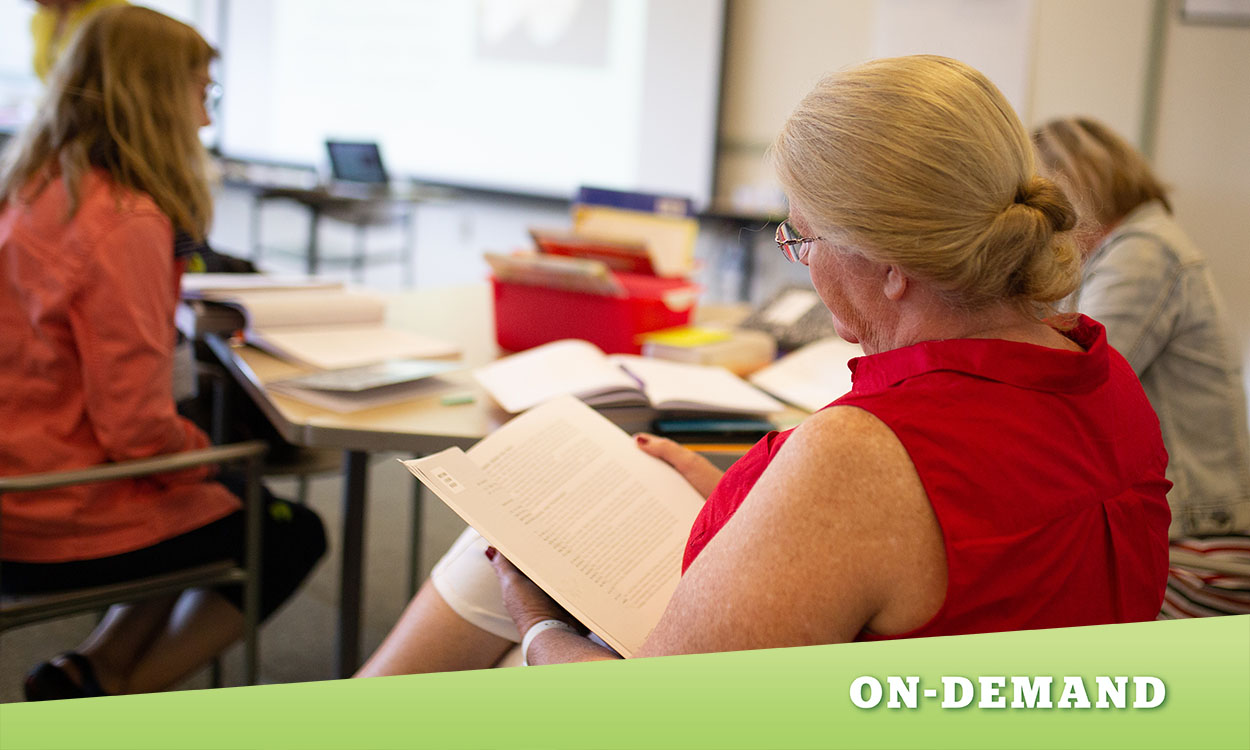Thinking, Talking, and Writing about Texts

Learn how to elevate students’ thinking about reading.
In this 8-week online graduate course, teachers use behavioral evidence of student talk and writing to design instruction to deepen the level of students’ thinking about reading.
- Literacy Coaches & Teacher Leaders
- Classroom Teachers, Interventionists, & Specialists
- Course Number: EEDUC 6169.80
- Fees are subject to change
Understanding and using behavioral evidence of student talk and writing helps teachers make effective decisions for all students, including those whose first language is not English.
In this online graduate course, you will learn ways to support students in thinking deeply about their reading and sharing that thinking through talking and writing. You will examine instructional contexts such as interactive read aloud, literature study, writing about reading, mini-lessons, and conferences.
By enrolling in an online graduate course, you have the flexibility to learn at your own pace and have access to a variety of educational resources and materials at your convenience.
Course Outcomes
- Explore rationales for a complex view of the development of thinking, talk, and writing in response to reading
- Learn specific reading behaviors and identify evidence of thinking in student talk
- Understand how teacher language facilitates processing of text
- Learn to help students move from thinking and talking about texts to writing about them
- Analyze students’ current reading behaviors, select goals and plan instruction using The Fountas and Pinnell Continuum of Literacy Learning
- Develop the concept of author’s purpose and theme through interactive read aloud.
- Select texts and create read aloud plans using the professional resources, Teaching for Comprehending and Fluency and Prompting Guide, Part 2
- Understand how to form literature study groups, conduct discussions, and analyze student talk
- Develop the ability to notice change in students’ oral and written responses
- Understand how theory and instructional practice support the development of the reading process in students through talking, drawing, and writing
- Articulate how course work impacts classroom instruction for diverse learners and special education students
You need to be teaching students in a grade K-8 or have access to a group of students you can work with over time to complete assignments successfully.
Required Texts
You are responsible for purchasing/having access to the following professional texts for this course:
- Fountas, I.C. & Pinnell, G.S. (2016). The Fountas and Pinnell literacy continuum, expanded edition: A tool for assessment, planning, and teaching, preK-8. Portsmouth, NH: Heinemann.
- Fountas, I.C. & Pinnell, G.S. (2006). Teaching for comprehending and fluency: Thinking, talking, and writing about reading, K-8. Portsmouth, NH: Heinemann.
- Fountas, I.C. & Pinnell, G.S. (2012). Prompting guide, part 2 for comprehension: Thinking, talking, and writing. Portsmouth, NH: Heinemann.
- Johnston, P. (2004). Choice words: How our language affects children’s language. Portland, ME: Stenhouse.
- Nichols, M. (2006). Comprehension through conversation: The power of purposeful talk in the reading workshop. Portsmouth, NH: Heinemann.
This option must be taken for 3 graduate credits. Take the course individually or as a required course in our 18-credit Online Graduate Certificate in Developing Literacy Expertise Through Responsive Classroom Teaching.


